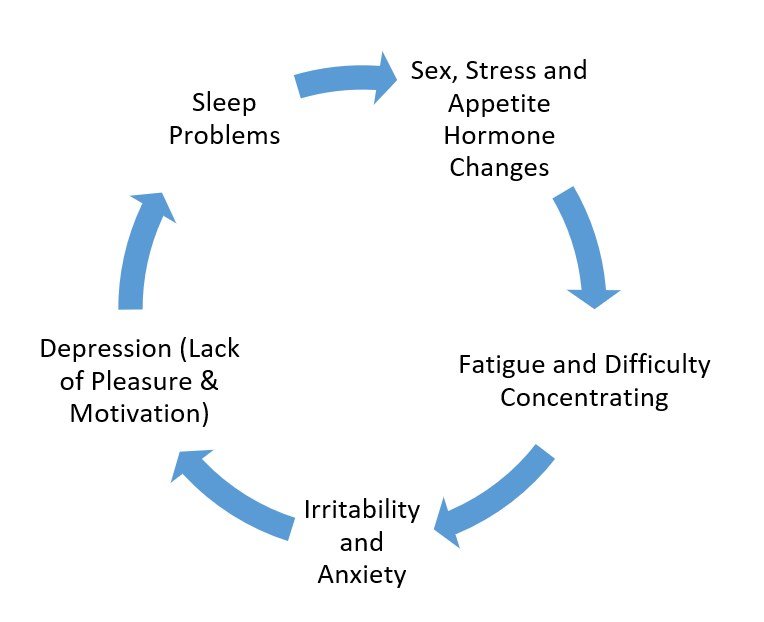
Cause
Sleeping too much can indicate poor quality sleep due to stress, poor sleep habits, pain, hormone or neurochemical imbalances, allergies, dehydration or inadequate nutrition. Sometimes you may sleep because you are tired. Sometimes you may sleep because you just have no motivation to do anything.
Insomnia can indicate an inability to relax, pain making it difficult to sleep, or insufficient serotonin (also implicated in depression) which means the body cannot produce enough melatonin to get the body into a deep sleep.
Function
Your body only has so much energy. When you are not getting enough sleep it cannot recharge as efficiently. It is like charging your phone while you are actively using it…It never gets fully charged, so you are frequently looking for a charging station.
How You Cope
- In the past when you have had difficulty sleeping, what has helped?
- What makes it hard for you to sleep?
Some simple-ish interventions
The first step is to identify why you aren’t sleeping well, and rule out the easy things.
- Create a good sleep routine that involves the same two or three activities (i.e. shower, read, lights out), and try to go to bed close to the same time most nights.
- Drink enough fluid during the day, but stop 90 minutes before bed. Water is preferable, but sports drinks, juices and other non-carbonated, non-caffeinated, non-alcoholic drinks will do. (Be careful about drinking excess calories which will cause weight gain).
- Reduce or eliminate caffeine at least 10 hours before bed.
- Identify and address anything that is waking you up in the night. (Dogs, coughing/allergies, snoring spouse, sleep apnea)
- Get a physical to rule out any medical issues especially thyroid and other hormone imbalances, and address anything that is causing chronic pain.
- Keep a notepad by your bed to write down things you need to remember instead of tossing them around in your head all night.
- Learn progressive muscle relaxation, so you can help your body relax.
- If you still wake up to go to the bathroom, use a red 5watt nighlight bulb to give you enough light to see without impairing your ability to get back to sleep.
- Finally, develop a stress management and relaxation plan.
Learn how to improve your sleep.
View the Counseling CEU course for this presentation.
This course is also included in our unlimited CEU packages.
